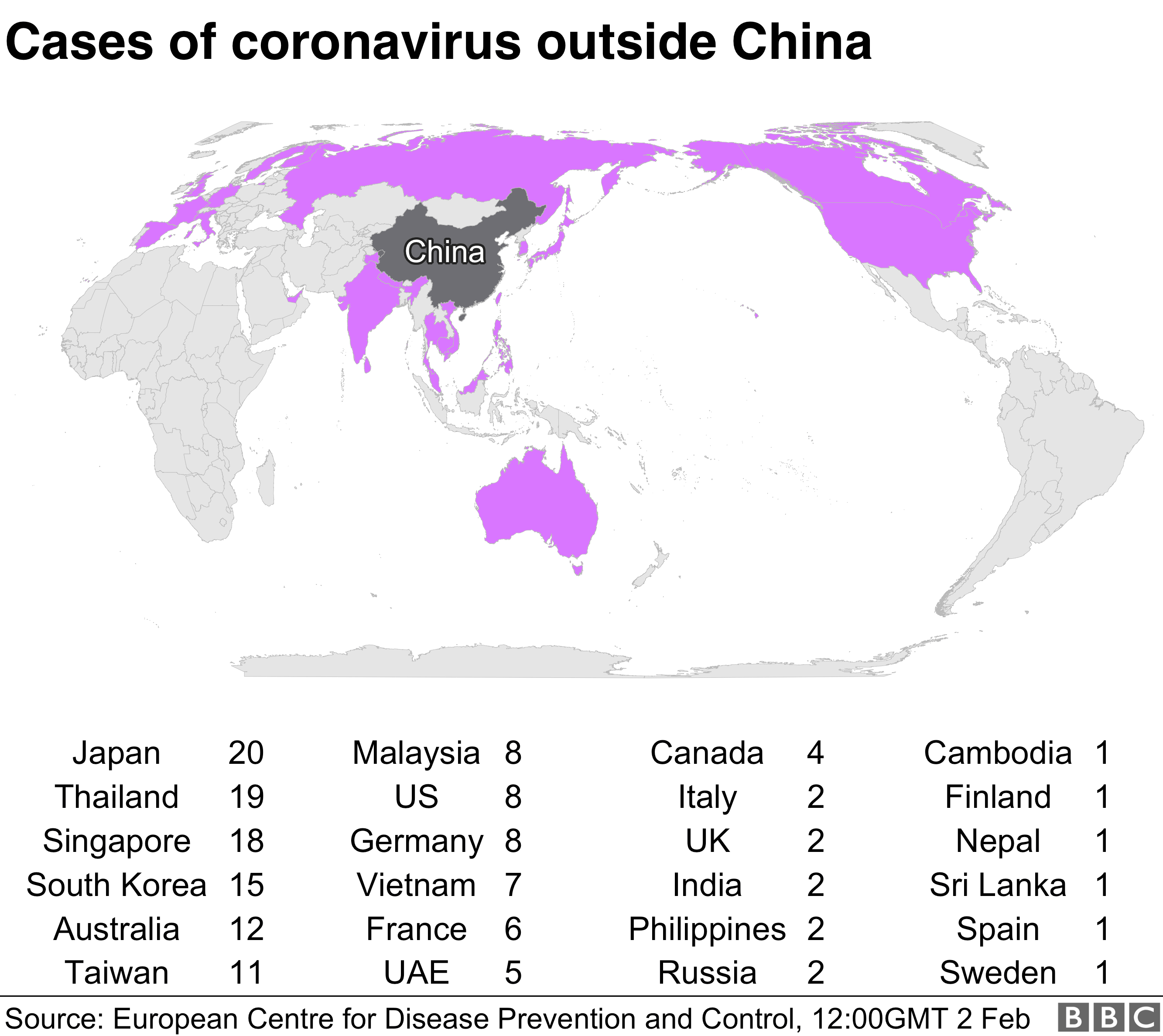The Chinese government has accused the United States of causing “panic” in its response to the coronavirus outbreak.
The accusation comes after the US declared a public health emergency on Friday and said it would deny entry to foreign nationals who had visited China in the past two weeks.
Chinese Foreign ministry spokesperson Hua Chunying said the US actions “could only create and spread fear”.
There have been more than 17,000 confirmed cases of the virus in China.
What else did China say?
In a news briefing on Monday, Ms Hua accused the US of spreading fear instead of offering assistance – saying it was the first country to impose a travel ban on Chinese travellers and the first to suggest a partial withdrawal of its embassy staff.
“It is precisely developed countries like the US with strong epidemic prevention capabilities… that have taken the lead in imposing excessive restrictions contrary to WHO recommendations,” she said, according to a Reuters report.
A handful of countries like Australia also imposed an entry ban on Chinese travelers shortly after the US ban.
The WHO has actually warned that closing borders could accelerate the spread of the virus, if travelers enter countries unofficially.
Some 361 people have died of the virus in mainland China alone.
Outside China, there are more than 150 confirmed cases of the virus – and one death, in the Philippines.
What measures has the US taken?
On 23 January, the US ordered the departure of all non-emergency US personnel and their family members from Wuhan in Hubei province, where the virus originated.
Less than a week later, it allowed for the voluntary departure of non-emergency personnel and relatives of US government employees from China.
On 30th January the World Health Organisation declared a global health emergency over the new virus. Following this, the US ordered the departure of all US personnel family members under the age of 21 in China.
Any US citizen who has been in Hubei province will be subject to 14 days’ quarantine upon returning to the US.
What are other countries doing to stem the outbreak?
Various countries have imposed travel restrictions to a varying degree.
- Denying entry to all foreign visitors who have recently been to China: US, Australia, Singapore
- Denying entry to foreigners travelling from mainland China: New Zealand, Israel
- Denying entry to foreigners who have visited Hubei province: Japan, South Korea
Other countries have seen their national carriers temporarily suspend all flights to mainland China. These include Egypt, Finland, Indonesia, the UK, and Italy amongst others.

Do the travel bans work?
Global health officials have advised against the bans.
- Coronavirus fear hits London’s Chinatown
“Travel restrictions can cause more harm than good by hindering info-sharing, medical supply chains and harming economies,” the head of the WHO, Dr Tedros Adhanom Ghebreyesus, said on Friday.
The WHO instead recommends introducing screening at border crossings.
How deadly is the virus?
More than 75,000 people may have been infected in the city of Wuhan, which is at the epicentre of the outbreak, experts say.
But estimates by the University of Hong Kong suggest the total number of cases could be far higher than the official figures.
- Diary of a life in locked-down Wuhan
- Coronavirus: What it does to the body
- Wuhan: The London-sized city where the virus began
A report on the early stages of the outbreak by the Lancet medical journal said most patients who died from the virus had pre-existing conditions.
The report found that, of the first 99 patients treated at the Jinyintan Hospital in Wuhan, 40 had a weak heart or damaged blood vessels. A further 12 had diabetes.
The virus causes severe acute respiratory infection and symptoms seem to start with a fever, followed by a dry cough.
But most people infected are likely to fully recover – just as they would from a normal flu.
An expert at China’s National Health Commission (NHC) said that one week was sufficient for a recovery from mild coronavirus symptoms.



